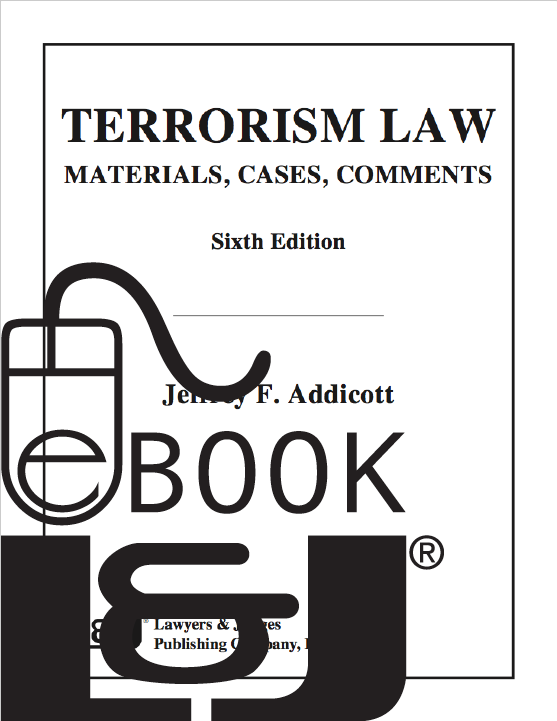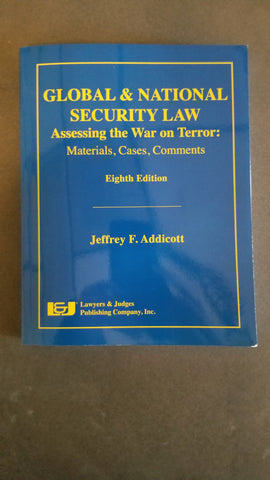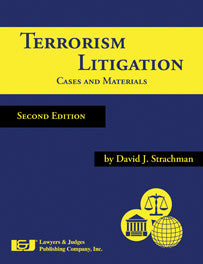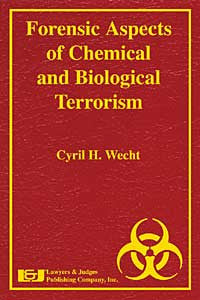
Terrorism Law: Materials Cases Comments, Sixth Edition PDF eBook
• Author: Jeffrey F. Addicott, B.A. J.D. LLM, SJD
• PDF eBook
As the first edition of Terrorism Law suggests, terrorism, like crime, can never be completely eradicated. Over the past few years, as previous editions were released, the United States has faced many changes and challenges pertaining to the War on Terror, and continues to do so today. Although it was realized at the time the war started that legal and policy challenges would exist, no one could have predicted exactly what events would occur. Much has changed since September 11, 2001 in both the law and policy areas. The biggest challenges have become realistically fighting and winning the War on Terror under a democratically based rule of law, and protecting human rights and civil liberties in an ongoing wartime situation. It has been determined that the United States of America must accomplish three things: identify and appreciate the threat of militant Islamic global terrorism; do a better job of bringing the battle to the terrorists and the nations that harbor them; and promote and sustain a dedicated democracy-building campaign in new governments such as those in Afghanistan and Iraq.
TOPICS INCLUDE:
- What is terrorism?
- The goal of terrorism
- State-sponsored and state-supported terrorism
- Sub-state terrorism
- Individual terrorism
- Al-Qa’eda-styled terrorism and Militant Islam
- The War on Terror
- September 11, 2001
- The Rule of Law: use of force
- NATO
- Congressional war-making power
- Presidential war-making power
- The employment of lawful violence
- Expanding the War on Terror
- The Bush Doctrine and the Rule of Law
- Power versus Words: The Rule of Law
- Civil liberties and the War on Terror
- Addressing Terrorism since 9/11
- Federal courts
- Investigating terrorist suspects
- Use of the military in domestic law enforcement
- New information-gathering technologies
- The Constitution and the War on Terror
- Necessity and rationale for the Law of War: lessons from My Lai
- Lesson One: Rationale for the Law of War
- Lesson Two: Soldiers must be trained in the Law of War
- Lesson Three: Preventing violations of the Law of War in the War on Terror
- Interrogation techniques and what is torture
- International agreements
- Allegations of United States sanctioned torture
- Abu Ghraib and the search for the smoking gun
- Contractors on the battlefield
- Cyberterrorism
- Prosecuting cyber attacks
- Cyber as a weapon of war
- Civil liability in the private sector
- Bioterrorism
- Weapons of mass destruction
- A new paradigm for war and avoiding terrorism
- The causes of aggression and terrorism
- Religion and the War on Terror
- Defining democratic values and democracy
- New non-traditional roles: human rights as a force multiplier
- The new paradigm for war and terrorism avoidance
- Leading the way: Pax Americana or the Rule of Law?
- Civil litigation and the War on Terror
- The role of the military and Army Special Forces in promoting human rights
- Why America must stay the course




